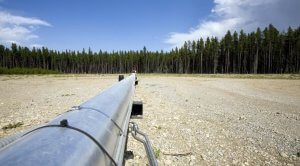 While perhaps not setting out to hurt our communities, one of Joe Biden’s first actions as U.S. president may cause substantial damage to Indigenous peoples, writes Stephen Buffalo in the Toronto Star. This article appeared in the Toronto Star’s Saturday Debate.
While perhaps not setting out to hurt our communities, one of Joe Biden’s first actions as U.S. president may cause substantial damage to Indigenous peoples, writes Stephen Buffalo in the Toronto Star. This article appeared in the Toronto Star’s Saturday Debate.
By Stephen Buffalo, March 10, 2021
While perhaps not setting out to hurt our communities, one of Joe Biden’s first actions as U.S. president may cause substantial damage to Indigenous peoples. The cancellation of the Keystone XL pipeline could be devastating to First Nations and Métis in Canada.
Keystone XL pipeline has attracted a great deal of media attention, mostly focused on Native Americans along the U.S. route. Despite our repeated efforts to share the story of the oil and gas producing First Nations in Canada, we got little attention. We respect Indigenous concerns and support their right to protests. Yet many Indigenous communities in Western Canada see the situation differently than some of those south of the border.
Our message is simple. Like all other Indigenous peoples, we respect the environment. Yet, we need the resources to build better homes for our families, provide work and hope for young people, and strengthen resilience among our people. The environmentalists who come onto our lands and tell us what to do offer no jobs, no food and no path toward sustainability.
Our observations are based on long experience. We have worked with the oil and gas sector for decades. It took time, but we worked through our differences and found common ground with industry and government. Our communities have experienced, for the first time in generations, a partial measure of the prosperity enjoyed by most other Canadians.
Equity and fairness remained elusive, however. Other levels of government get most of the resource revenue from our lands. Resource revenue transfers underpin Canada’s equalization system and make possible the quality of life and services available across the nation. Yet, First Nations receive a very small percentage of the total revenue.
For years, we have been blocked from getting fair market value for our products by the limited ability to reach Southern U.S. and international markets. New pipelines like Keystone XL and Transmountain would help ensure that we got fair access to global clients. Thus, the shutting down of Keystone was done without any consideration of the needs of our First Nation communities.
Our community leaders want to break our dependence on federal funding, delivered under the archaic Indian Act. We want own-source revenues! Although Alberta provides $262 billion in transfer payments to other parts of our country, little is left for all 642 First Nations in Canada through appropriate funding agreements to manage our communities.
Let’s be blunt. Our collective future is at stake. Our communities are growing rapidly, but we still often lack the most basic requirements, including proper housing, safe drinking water, or reliable internet. If there is a further cut in oil and gas revenue, government funds will decline sharply, reducing the ability of federal departments to address our needs and those of other Canadians.
As First Nations people, we reject the false dichotomy that has been created between oil and gas development and climate change. We all support the need for greater respect for the environment. But enough, already, of this well-coordinated attack on the energy sector. Our people support and are willing to invest into a greener future with solar panels, wind turbines and lithium powered vehicles. But it will be a tough road to get there without oil and gas.
Canada’s Prime Minister needs to show much greater support for our energy industry. Please stop importing foreign oil; our country produces abundant oil and gas under the best environmental regulations in the world. And please consider accelerating pipelines that deliver product to different “customers” who need our energy. Northern Gateway and Energy East would have helped our national economy; we are all the poorer for their cancellation. Our natural resources should not be landlocked through government policy and neglect.
The path forward requires expanding Indigenous engagement and ownership, maintaining the world’s highest environmental standards, and improving regulatory and permitting systems. We need investment-friendly policies, world-class remediation efforts, and a much greater recognition of the role that energy revenues play in funding governments.
The country is not currently on the right path; hopefully inspired by First Nations leadership, we start moving in the right direction and doing so together.
Steven Buffalo is president and CEO of the Indian Resource Council and a senior fellow at the Macdonald-Laurier Institute.




